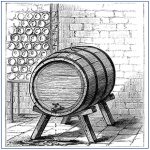Marshall Trilogy Federal Indian Law
The Marshall Trilogy are the three foundational Indian law cases. Johnson v. M’Intosh in 1823 was the first of the three, and was the first Indian law case decided by the U.S. Supreme court. Johnson v. M’Intosh was land dispute and the nature of ejectment involving non-Indians. It was considered an Indian law case, even though there were no Indians involved in the case.
Joel West Williams, a Staff Attorney at the Native American Rights Fund and a citizen of the Cherokee Nation, grew up in Little Rock, Arkansas. He obtained degrees in Psychology and Religious Studies from Naropa University. At Naropa, he was awarded the President’s Leadership Scholarship and his senior project in the religious studies department focused on Cherokee history and religion.
Joel attended Widener University School of Law, where he was a student attorney at the environmental law clinic and represented citizen groups pursuing lawsuits under the Clean Air Act, Clean Water Act, and Administrative Procedures Act. He was also awarded a certificate of achievement by Joseph R. Biden.
We are extremely pleased to have someone of his background speak on such an important issue. In this CLE video clip, Joel discusses Marshall Trilogy Federal Indian Law.
One party had reportedly acquired title of land from a tribe through a private purchase. The other party in the case had acquired title to the land via a government land Patent. It is plain to see that this case was collusive litigation, that these were land speculators seeking to defeat the 1763 proclamation saying the government, at that time the Crown, could acquire title from Indian tribes.
The case was settled on a set of stipulated facts, which are now considered incorrect. If you would like to read more on this, check out Lindsay Robertson’s book, Conquest By Law.
For more on the different periods of Federal Indian Policy, check out the full video with Joel West Williams from myLawCLE.com








